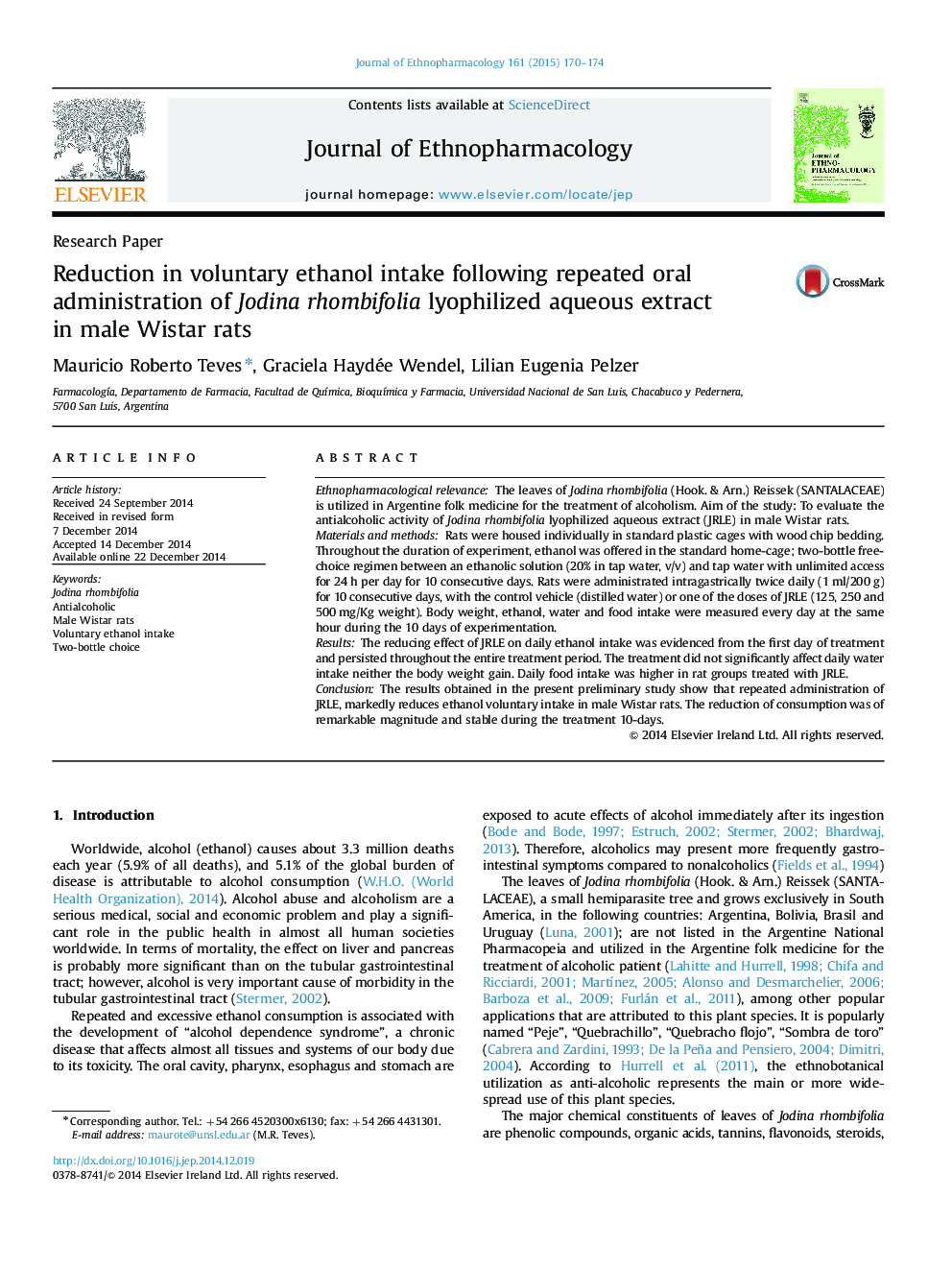| Article ID | Journal | Published Year | Pages | File Type |
|---|---|---|---|---|
| 5835568 | Journal of Ethnopharmacology | 2015 | 5 Pages |
Ethnopharmacological relevanceThe leaves of Jodina rhombifolia (Hook. & Arn.) Reissek (SANTALACEAE) is utilized in Argentine folk medicine for the treatment of alcoholism. Aim of the study: To evaluate the antialcoholic activity of Jodina rhombifolia lyophilized aqueous extract (JRLE) in male Wistar rats.Materials and methodsRats were housed individually in standard plastic cages with wood chip bedding. Throughout the duration of experiment, ethanol was offered in the standard home-cage; two-bottle free-choice regimen between an ethanolic solution (20% in tap water, v/v) and tap water with unlimited access for 24Â h per day for 10 consecutive days. Rats were administrated intragastrically twice daily (1Â ml/200Â g) for 10 consecutive days, with the control vehicle (distilled water) or one of the doses of JRLE (125, 250 and 500Â mg/Kg weight). Body weight, ethanol, water and food intake were measured every day at the same hour during the 10 days of experimentation.ResultsThe reducing effect of JRLE on daily ethanol intake was evidenced from the first day of treatment and persisted throughout the entire treatment period. The treatment did not significantly affect daily water intake neither the body weight gain. Daily food intake was higher in rat groups treated with JRLE.ConclusionThe results obtained in the present preliminary study show that repeated administration of JRLE, markedly reduces ethanol voluntary intake in male Wistar rats. The reduction of consumption was of remarkable magnitude and stable during the treatment 10-days.
Graphical abstractDownload high-res image (318KB)Download full-size image
